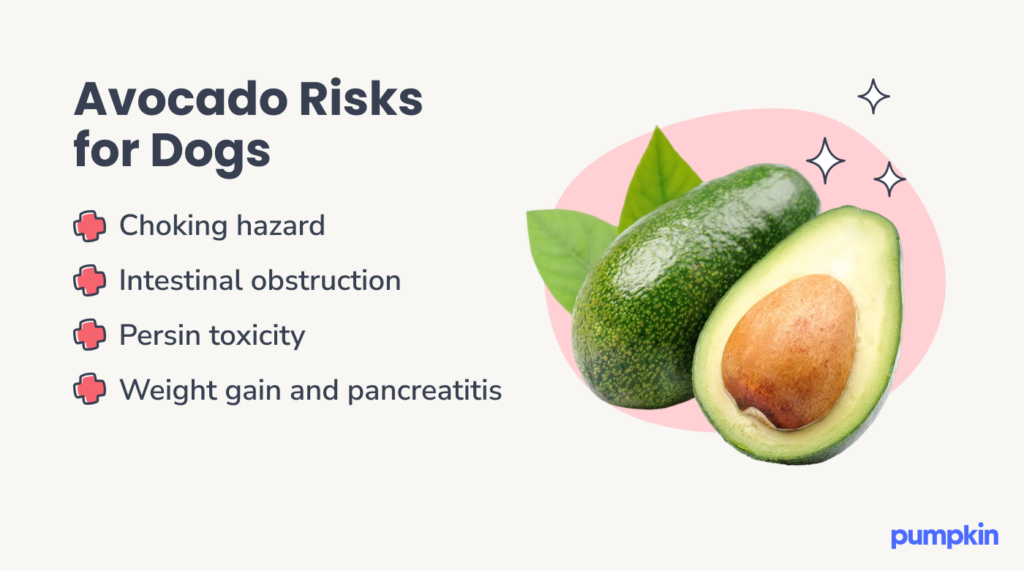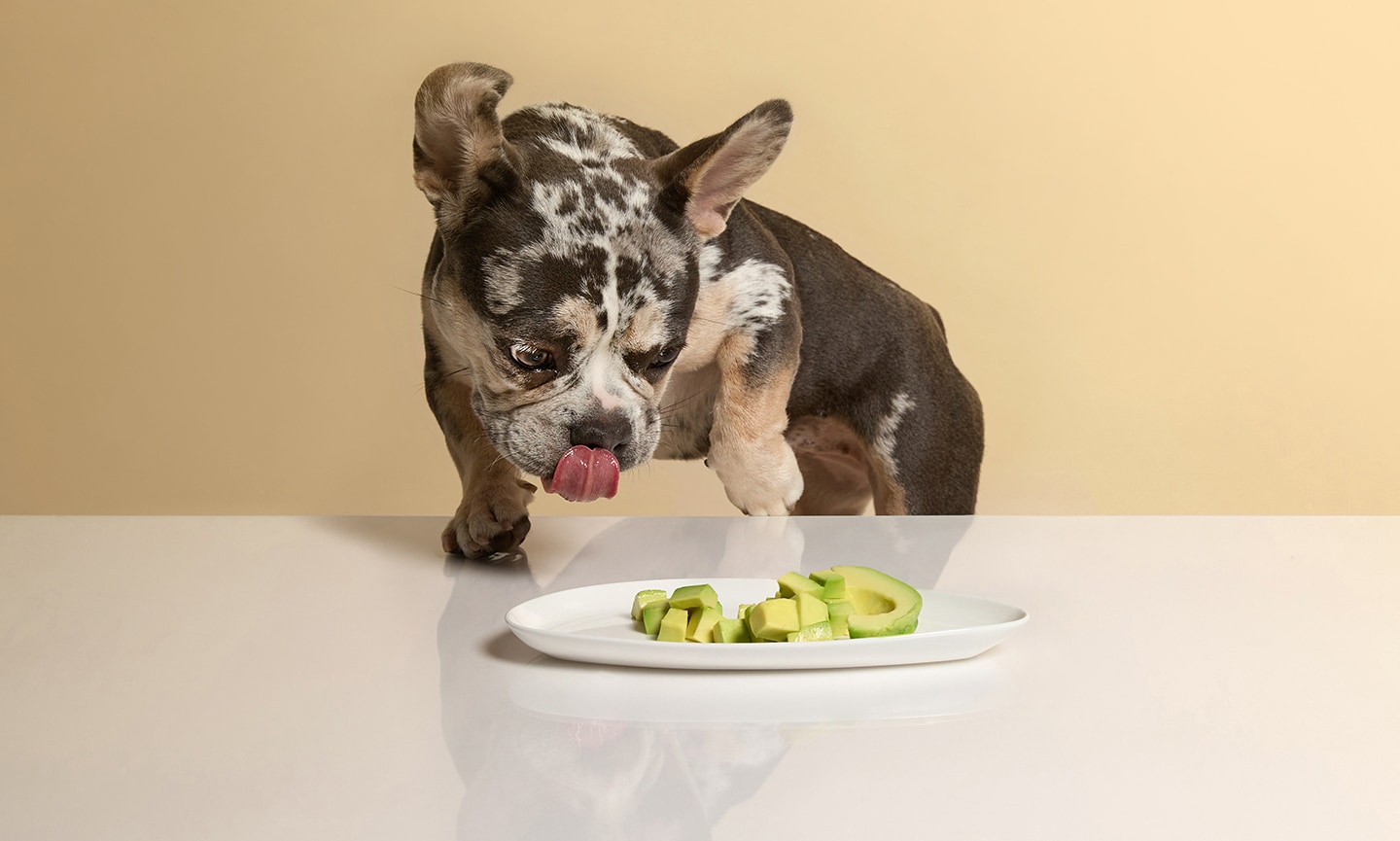No, avocados are not safe for dogs to eat. They contain persin, a toxin harmful to dogs.
Avocados are a trendy, nutritious fruit for humans. But what about our furry friends? While packed with vitamins and healthy fats for us, avocados can pose risks to dogs. The persin found in avocados is toxic to dogs, leading to potential health issues.
Even small amounts can cause vomiting, diarrhea, or more severe problems. Dogs can also choke on the avocado pit, leading to serious complications. Understanding the dangers avocados pose to dogs is crucial for pet owners. In this post, we will explore why avocados are harmful to dogs and how to keep your pet safe. Read on to learn more about this important topic.
Avocado Composition
Avocados are often hailed as a superfood for humans. They are packed with nutrients and healthy fats. But, are they safe for dogs? Understanding the avocado composition is key to answering this question.
Nutritional Value
Avocados are rich in vitamins like A, B6, C, and E. They contain minerals such as potassium and magnesium. They are also high in healthy fats. These fats can improve skin and coat health in dogs.
Fiber in avocados aids digestion. They also provide antioxidants. These can help fight free radicals in a dog’s body. Nutrient-dense, avocados seem beneficial. But, there’s more to consider.
Potential Toxins
Avocados contain a toxin called persin. Persin is mostly in the leaves, bark, and seed. It is also in the flesh, though in smaller amounts. This toxin can cause vomiting and diarrhea in dogs.
The avocado pit is another concern. It can be a choking hazard. If swallowed, it can block a dog’s intestines. The skin of the avocado is tough and hard to digest. This can lead to stomach issues.
While the flesh has nutrients, the risks are significant. It’s best to avoid giving avocados to dogs. Their health and safety should come first.

Credit: www.pumpkin.care
Persin: The Primary Concern
Avocados are a popular and nutritious fruit for humans, but they can pose certain risks for dogs. One of the primary concerns is a compound found in avocados called persin. Understanding persin and its effects on dogs is crucial to ensure the safety and well-being of your furry friend.
What Is Persin?
Persin is a natural fungicidal toxin found in avocados. It is present in the leaves, skin, bark, and seeds of the avocado plant. Even though small amounts of persin are found in the flesh of the fruit, it can still be harmful to dogs.
The purpose of persin in avocados is to protect the plant from fungi and pests. However, while it serves this protective role for the plant, it can be dangerous for animals, particularly dogs.
Effects On Dogs
When dogs consume persin, it can lead to gastrointestinal issues such as vomiting and diarrhea. In severe cases, it may cause more serious symptoms like difficulty breathing and fluid accumulation around the heart.
I remember my neighbor’s dog, Max, who once ate a piece of avocado. Max ended up with an upset stomach and a trip to the vet. This highlights how even a small amount can affect dogs.
It’s important to note that not all dogs react the same way to persin. Some might show mild symptoms, while others could experience severe reactions. Keeping avocados away from your dog is the best way to prevent any potential risks.
Have you ever wondered how you can protect your dog from such dangers? Simple actions like educating yourself about harmful foods and keeping them out of reach can make a big difference. Always consult your vet if you’re unsure about what foods are safe for your dog.
Other Hazardous Components
Avocados are known for their health benefits for humans. Yet, they pose risks to dogs. Apart from the toxin persin, other components of avocados can harm your pet.
Pits And Choking Hazards
Avocado pits are large and hard. They can cause choking in dogs. If a dog swallows a pit, it can block its airway or intestines. This can lead to serious health issues.
High Fat Content
Avocados are high in fat. While healthy for humans, this fat is not suitable for dogs. Consuming high-fat foods can cause pancreatitis in dogs. This condition is painful and requires veterinary care.

Credit: be.chewy.com
Symptoms Of Avocado Poisoning
Avocado poisoning in dogs is a serious concern. If your dog eats avocado, it can lead to various health issues. Symptoms of avocado poisoning can vary in severity. Being aware of these symptoms can help you take quick action.
Gastrointestinal Issues
One of the first signs is gastrointestinal distress. Your dog may experience vomiting. Diarrhea is also common. These symptoms can cause dehydration. Your dog might lose its appetite. Abdominal pain is another sign. Watch for these symptoms closely.
Respiratory Problems
Respiratory issues may develop as well. Your dog might have difficulty breathing. Coughing is another symptom. In severe cases, fluid may build up in the chest. This can lead to respiratory distress. Immediate veterinary care is crucial.
Emergency Response
Avocados can be dangerous for dogs. If your dog eats avocado, you must act quickly. Immediate response can save your dog’s life. This section helps you know what to do in an emergency.
When To Contact A Vet
If your dog eats avocado, call your vet right away. Look for symptoms like vomiting, diarrhea, or trouble breathing. If you see these signs, your dog needs medical help. Even if your dog seems fine, a vet can give advice.
Immediate Actions
While waiting for the vet, keep your dog calm. Remove any remaining avocado to prevent more eating. Do not try to make your dog vomit. This can cause more harm. Give your dog fresh water to drink. Keep a close eye on your dog’s behavior and symptoms.

Credit: www.barkandwhiskers.com
Safe Alternatives For Dogs
Avocados can be harmful to dogs due to a substance called persin. Dogs may experience stomach upset or more serious issues. Opt for safer treats like carrots or apples.
When it comes to feeding your dog, you always want to make the best choices. While avocados might not be the safest option for your furry friend, there are plenty of other healthy alternatives you can consider. Let’s dive into some safe, nutritious options that your dog will love.Healthy Fruits And Vegetables
Many fruits and vegetables are not only safe for dogs but also packed with essential nutrients. Carrots, for example, are great for dogs. They are low in calories and high in fiber and vitamins. Apples are another excellent choice. Just make sure to remove the seeds and core before giving them to your dog. They are sweet, crunchy, and loaded with vitamins A and C. Blueberries are a fun treat as well. These little berries are full of antioxidants that can support your dog’s immune system.Commercial Dog Treats
If you’re looking for convenience, commercial dog treats can be a good alternative. There are many brands that offer healthy options made from natural ingredients. Look for treats that list meat as the first ingredient. Avoid those with artificial flavors or preservatives. Many dogs also enjoy treats made from sweet potatoes. These are often available in dehydrated forms and are both tasty and nutritious. What are your dog’s favorite healthy snacks? Have you found any surprising fruits or vegetables that your dog loves? Share your experiences and let’s keep our furry friends happy and healthy together!Preventive Measures
Preventing your dog from eating avocados is crucial. Avocados contain persin, a toxin harmful to dogs. Taking preventive measures can help protect your furry friend from harm.
Safe Storage Of Avocados
Store avocados in places your dog cannot reach. Use high cabinets or closed pantries. Avoid leaving avocados on countertops. Curious dogs might find a way to get them.
Consider using containers with tight lids. This adds an extra layer of protection. Always keep an eye on your dog in the kitchen. They can be sneaky when hungry.
Educating Family And Friends
Inform your family about the dangers of avocados. Everyone should know not to feed avocados to the dog. Share this information with friends who visit often.
Explain why avocados are harmful. Clear communication can prevent accidental feeding. Make it a rule to keep all human food out of the dog’s reach.
Set up reminders if needed. Use sticky notes in the kitchen. This keeps everyone aware and vigilant.
Frequently Asked Questions
What Happens If My Dog Eats Avocado?
If your dog eats avocado, it may experience vomiting, diarrhea, or pancreatitis. Avocado contains persin, which can be toxic to dogs.
What Fruits Can’t Dogs Eat?
Dogs should avoid grapes, raisins, cherries, avocados, and citrus fruits. These can be toxic and harmful to their health.
Is Guacamole Safe For Dogs?
Guacamole is not safe for dogs. It contains avocado, which has persin, a toxin harmful to dogs. Avoid feeding it.
Can Dogs Eat Bananas Or Avocados?
Dogs can eat bananas in moderation. Bananas are safe and healthy for dogs. Avoid feeding dogs avocados; they contain persin which is toxic to dogs.
Conclusion
Feeding avocados to dogs poses risks. They contain persin, which is harmful. Small amounts might be safe, but why risk it? Better safe than sorry. Choose dog-friendly fruits instead. Your furry friend will thank you. Always consult a vet for dietary advice.
Keep your pet happy and healthy.